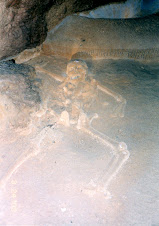Multiple Choice Portion is ~50+ Points and some Bonus . . . Ponder the following for the MC and Non-MC Assessments:
1) Examine the two documents that follow . . . what are Jefferson's key points regarding the Constitution in these letters?
Letter ASome men look at constitutions with sanctimonious reverence, and deem them like the arc of the covenant, too sacred to be touched. They ascribe to the men of the preceding age a wisdom more than human, and suppose what they did to be beyond amendment. I knew that age well; I belonged to it, and labored with it. It deserved well of its country. It was very like the present, but without the experience of the present; and forty years of experience in government is worth a century of book reading; and this they would say themselves, were they to rise from the dead. I am certainly not an advocate for frequent and untried changes in laws and constitutions. I think moderate imperfections had better be borne with; because, when once known, we accommodate ourselves to them, and find practical means of correcting their ill effects. But I know also, that laws and institutions must go hand in hand with the progress of the human mind. As that becomes more developed, more enlightened, as new discoveries are made, new truths disclosed, and manners and opinions change with the change of circumstances, institutions must advance also, and keep pace with the times.
Jefferson to Samuel Kercheval, 12 July, 1816
Letter B
... I consider the government of the U S. as interdicted by the Constitution from intermeddling with religious institutions, their doctrines, discipline, or exercises. This results not only from the provision that no law shall be made respecting the establishment, or free exercise, of religion, but from that also which reserves to the states the powers not delegated to the U.S. Certainly no power to prescribe any religious exercise, or to assume authority in religious discipline, has been delegated to the general government. It must then rest with the states, as far as it can be in any human authority.
I am aware that the practice of my predecessors [prescribing a day of fasting and prayer] may be quoted…. Be this as it may, everyone must act according to the dictates of his own reason, & mine tells me that civil powers alone have been given to the President of the U S. and no authority to direct the religious exercises of his constituents.
(Thomas Jefferson, letter to letter to Rev. Samuel Miller, from Washington, January 23, 1808)
2) Who is the angry snapping turtle below? Why did he exist? What impacts did he have? What region of the country hated him the most? Was he an effective snapping turtle? Chronologically, what events came before and after him?
3) What regions do the various numbers on the map represent? From what timeframe is this map? What event(s) happened that led to this map?




No comments:
Post a Comment